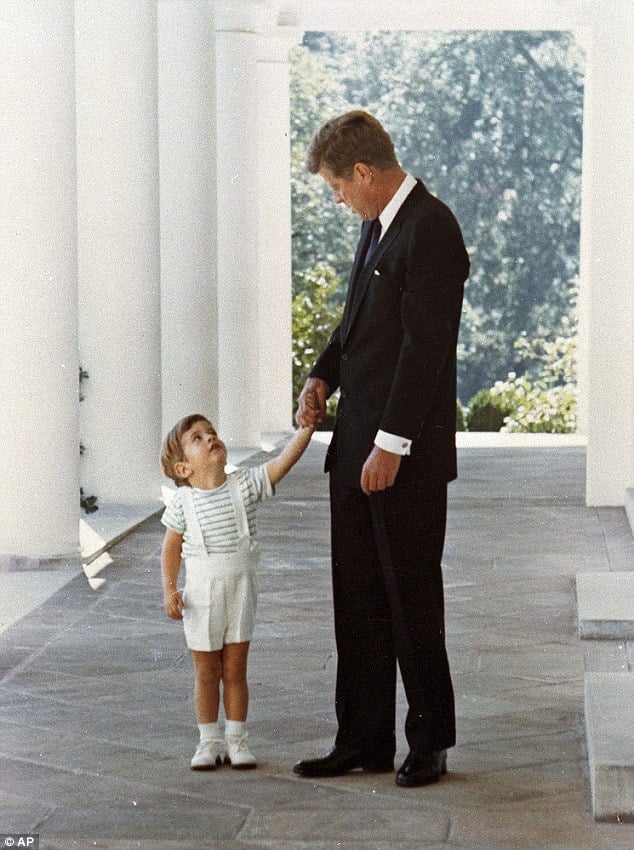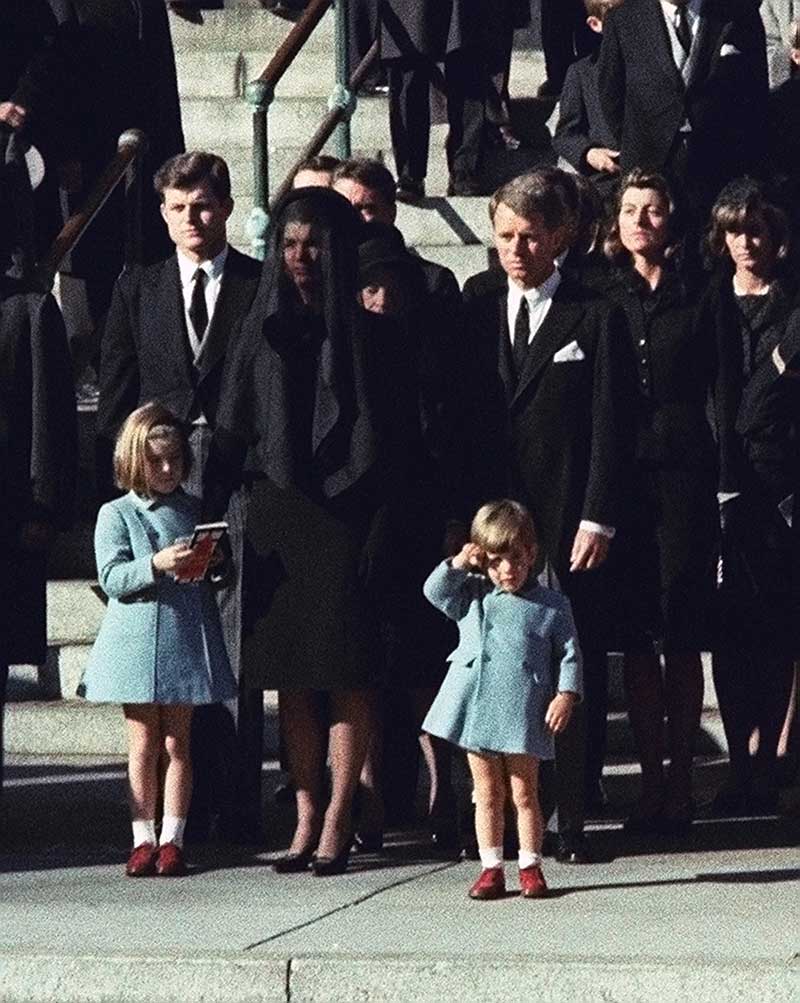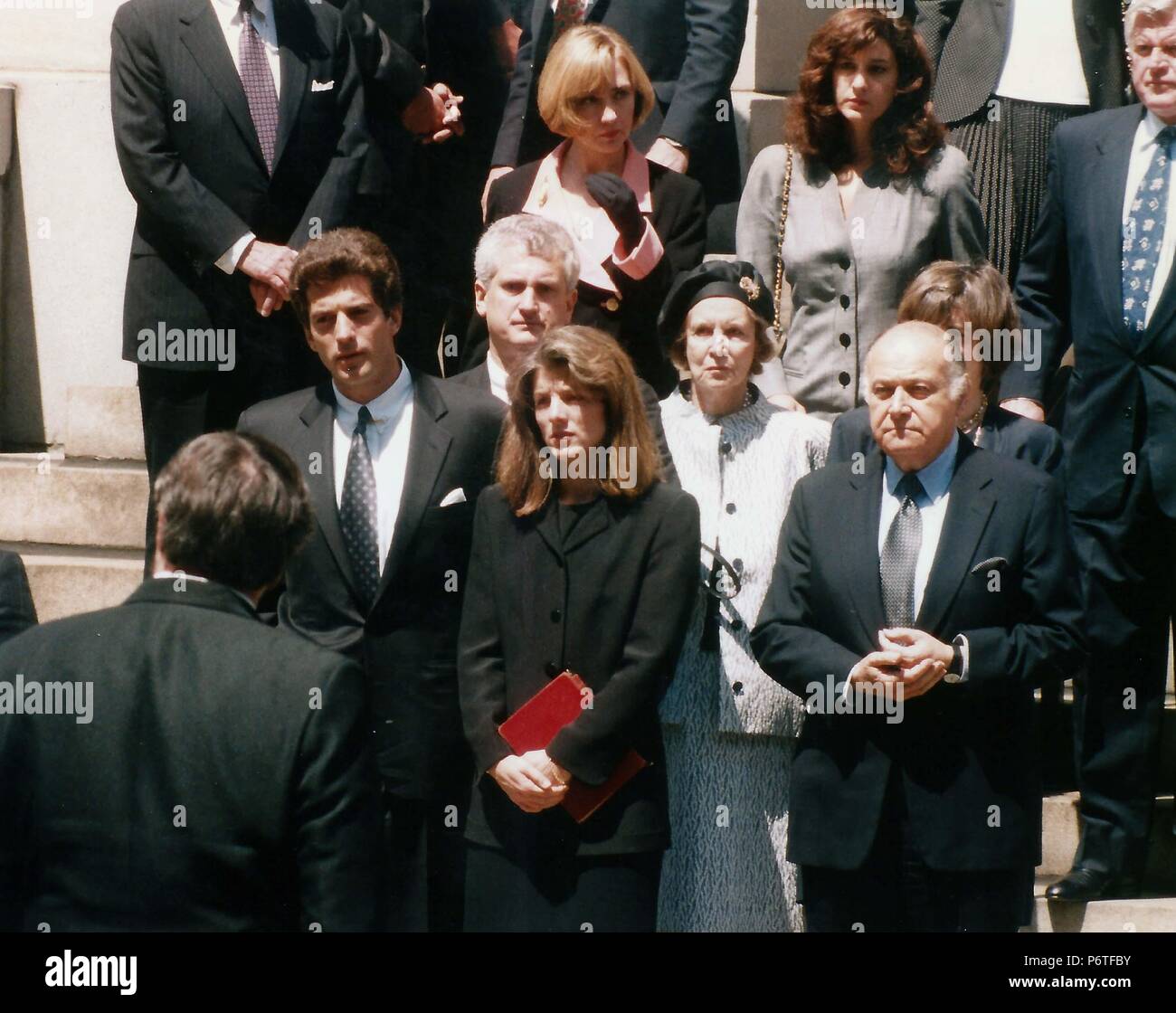The funeral of John F. Kennedy Jr., often referred to as JFK Jr., remains a poignant moment in American history. More than just a tribute to a beloved public figure, it served as a powerful reminder of the Kennedy family's lasting influence. As we explore the details of this historic event, we uncover the profound impact JFK Jr. had on the nation and the world.
John F. Kennedy Jr., the son of the late President John F. Kennedy and Jacqueline Kennedy Onassis, was an enduring symbol of hope and charm for countless Americans. His untimely passing in 1999 left the nation in shock, prompting an outpouring of grief and a grand farewell that resonated with millions. This article delves into the JFK Jr. funeral, its significance, and the enduring legacy of this remarkable individual.
Through a detailed examination of the cultural and historical context surrounding the funeral, the rituals involved, and the tributes paid to JFK Jr., we aim to provide a comprehensive understanding of this pivotal moment in history. This exploration ensures that the legacy of John F. Kennedy Jr. is preserved and celebrated for generations to come.
Read also:Justin Biebers World Of Highperformance Cars
Life and Legacy of John F. Kennedy Jr.
Early Years and Family Heritage
John F. Kennedy Jr. was born on November 25, 1960, in Washington, D.C., to President John F. Kennedy and First Lady Jacqueline Kennedy. From his earliest days, he was a symbol of the Kennedy dynasty, capturing the hearts of the American public with his charisma and charm. Below is a summary of his personal details:
| Full Name | John Fitzgerald Kennedy Jr. |
|---|---|
| Birth Date | November 25, 1960 |
| Death Date | July 16, 1999 |
| Parents | John F. Kennedy and Jacqueline Kennedy Onassis |
| Spouse | Carolyn Bessette Kennedy |
As the son of a legendary president, JFK Jr. grew up under the watchful eyes of the public, embodying both the privileges and challenges of belonging to one of America's most prominent families. His early life was marked by moments of triumph and tragedy, shaping him into a symbol of hope and renewal for the nation.
The Ceremony: A Tribute to JFK Jr.
Preparation and Execution
The funeral of John F. Kennedy Jr. was meticulously planned to honor his life and legacy. Held on July 23, 1999, at St. Patrick's Cathedral in New York City, the ceremony was chosen for its historical significance and spiritual importance. Attended by dignitaries, family members, and close friends, the event reflected the widespread admiration and respect JFK Jr. inspired.
Key elements of the funeral included:
- A private mass conducted by Cardinal Edward Egan
- Music performances by renowned artists
- Personal tributes delivered by family and friends
The service was steeped in tradition yet infused with JFK Jr.'s modern sensibilities and contributions to society. It balanced solemnity with celebration, capturing the essence of his life and impact.
The Broader Significance of JFK Jr.'s Funeral
A Moment of National Unity
The funeral of John F. Kennedy Jr. transcended a simple farewell; it became a moment of reflection for the nation. As the son of a beloved president, JFK Jr. symbolized the promise of a new generation. His untimely death served as a poignant reminder of life's fragility and the importance of cherishing every moment.
Read also:Mastering Multiimage Posts A Comprehensive Guide To Enhancing Your Instagram Experience
Historians note that the funeral acted as a unifying event, bringing together people from diverse backgrounds to mourn the loss of a public figure who had touched countless lives. It stood as a testament to the enduring legacy of the Kennedy family and their profound influence on American culture and politics.
Key Participants in the Ceremony
Notable Figures and Contributions
Several notable figures played critical roles in the JFK Jr. funeral, including:
- Robert F. Kennedy Jr., cousin of JFK Jr., who delivered a heartfelt eulogy
- President Bill Clinton, who attended the ceremony and offered words of condolence
- Cardinal Edward Egan, who presided over the mass
Each of these individuals contributed to the solemnity and dignity of the event, ensuring that JFK Jr.'s memory was honored in a manner that reflected his life and values. Their presence underscored the significance of the occasion and the deep respect felt for the Kennedy family.
Cultural Reflections: The Funeral's Impact
A Mirror of American Values
The funeral of John F. Kennedy Jr. had a lasting cultural impact, reflecting the core values and traditions of American society. It highlighted themes of family, legacy, and public service—values central to JFK Jr.'s life. Extensive media coverage brought the event to millions worldwide, sparking conversations about the Kennedy legacy.
According to a report by the Pew Research Center, the funeral was one of the most-watched events of 1999, underscoring its importance in the nation's collective consciousness. It served as a reminder of the Kennedy family's enduring influence on American culture and politics.
Honoring JFK Jr.'s Memory
Tributes and Memorials
In the years following his death, numerous tributes and memorials were established to honor John F. Kennedy Jr. These include:
- The John F. Kennedy Jr. Forum at Harvard University, dedicated to fostering public discourse
- Charitable initiatives in his name, focusing on education and public service
- Annual memorial services commemorating his life and contributions
These tributes stand as a testament to JFK Jr.'s enduring legacy and the profound impact he had on society. They ensure that his memory continues to inspire future generations to pursue lives of purpose and service.
Lessons from JFK Jr.'s Legacy
Inspiring the Next Generation
The life and death of John F. Kennedy Jr. offer valuable lessons for future generations. His commitment to public service, passion for justice, and dedication to family and community continue to inspire those who study his life. Through his example, we are reminded of the importance of living with purpose and integrity.
Experts emphasize that JFK Jr.'s legacy serves as a call to action for young people to engage in public service and strive to create a better world. His story is one of hope, resilience, and the enduring power of legacy.
The Kennedy Family: A Tapestry of Triumph and Tragedy
Resilience in the Face of Adversity
The Kennedy family has faced numerous challenges throughout its history, marked by both triumphs and tragedies. The funeral of John F. Kennedy Jr. was another chapter in this complex narrative, highlighting the family's resilience in the face of adversity. Through their public service and commitment to social causes, the Kennedys have left an indelible mark on American society.
Despite the hardships they have endured, the Kennedy family continues to inspire millions with their dedication to public service and unwavering commitment to making a difference in the world.
Final Thoughts
In conclusion, the funeral of John F. Kennedy Jr. was a defining moment in American history, reflecting the enduring legacy of one of the nation's most iconic families. By exploring the ceremony, its significance, and the tributes paid to JFK Jr., we gain a deeper understanding of his impact on society and the world.
We invite readers to share their thoughts and reflections on this article, engaging in meaningful discussions about the Kennedy legacy and its relevance today. Through an exploration of the life and death of John F. Kennedy Jr., we honor his memory and ensure that his legacy continues to inspire future generations.
Table of Contents
- Life and Legacy of John F. Kennedy Jr.
- The Ceremony: A Tribute to JFK Jr.
- The Broader Significance of JFK Jr.'s Funeral
- Key Participants in the Ceremony
- Cultural Reflections: The Funeral's Impact
- Honoring JFK Jr.'s Memory
- Lessons from JFK Jr.'s Legacy
- The Kennedy Family: A Tapestry of Triumph and Tragedy
- Final Thoughts


